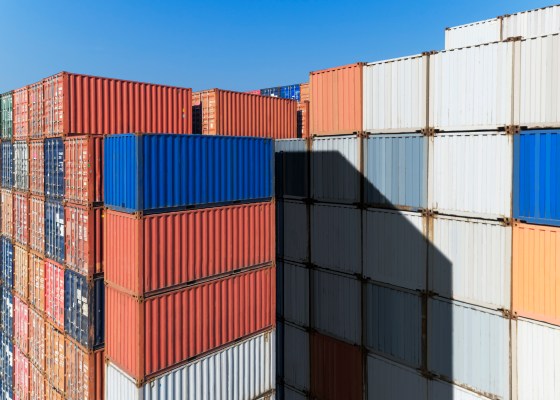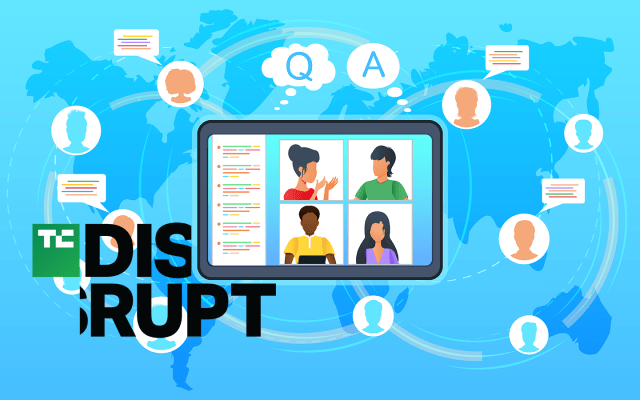Zencargo raises $42M to expand its digital-first freight forwarding platform internationally
While consumers and businesses continue to use their purchasing power to spin the wheels of the globalized economy, one of the companies that’s built a technology platform to help that economy operate more smoothly is announcing an investment to...

While consumers and businesses continue to use their purchasing power to spin the wheels of the globalized economy, one of the companies that’s built a technology platform to help that economy operate more smoothly is announcing an investment to double down on growth.
Zencargo, which has built a digital platform to enable freight forwarding — the process by which companies organize and track the movements of items they are making and selling (and the components needed for those items) — has raised £30 million (about $42 million). Alex Hersham, the CEO who co-founded the company with Richard Fattal (CCO) and Jan Riethmayer, said that London-based Zencargo will be using the funding to open offices in The Netherlands, Hong Kong and the U.S.; to more than double its headcount to 350 from 150 today; and to begin to make moves into trade finance — a critical lever for facilitating the trading activities that are the bread and butter of Zencargo’s business.
The Series B is being led by Digital+ Partners, with HV Capital, which led its previous round, also participating. Zencargo is not disclosing its valuation but the company — which provides services to both to companies and distributors like Amazon to ship goods to its fulfillment centers; and brands like Vivienne Westwood, Swoon Furniture, and Soho Home — said that it is on track to make £100 million in revenues this year, and £200 million in 2022.
That is against the backdrop of some major world events that have both proven to be challenges as well as opportunities for the startup.
Brexit in the UK has created quite a mess for moving goods in and out of the country and into Europe (difficult but ultimately a net positive for Zencargo: it helps facilitate some aspects of that movement for its clients). Covid-19, meanwhile, has impacted economies (again: a difficult impact but also a positive, in that people are spending more money on goods for themselves and less on travel, leading to more demand for shipping those goods around the globe).
The Suez Canal blockage, on the other hand, also continues to loom (not great: Hersham said that Zencargo and others are still dealing with the fallout of those delays, although it’s highlighted the need for blended approaches when it comes to moving goods, with some items shipped slower by sea, and others faster by air or road). And there is the growing priority of how shipping impacts carbon footprints (an area of opportunity, interestingly: Zencargo can provide more efficient routing, and also services to consider how to carbon offset shipping activities).
The more general challenge that Zencargo is tackling goes hand in hand with our existence as consumers.
Many of us do not blink an eye when we go online or to a store to procure something, and we get whatever that happens to be right away.
But the simplicity of wanting and subsequently obtaining goods sits on top of a huge, and hugely complex, logistics operation. It might involve components, assembly, or growing and processing things, shipping from one place to another, passing through multiple distribution and shipping hubs, customs, retailers and finally delivery to your store, or directly to you — a logistics chain that, taking all the world’s goods into account, has been estimated to be worth up to $12 trillion annually. Freight forwarding is the process by which all of that logistics works as it should, and in itself accounts for hundreds of billions of dollars in spend, and potentially more than $1 trillion in costs when things go awry.
Traditionally, a lot of freight forwarding work has been done offline, a messy process involving paper and faxing, prone to mistakes, over- and under-supply based on sales and typically hard to scrutinize because of the lack of centralized information. Companies like Zencargo — along with others in the same space like Flexport — have built digitized platforms to manage all of this, tracking items by SKU data, matching shipments with real-time insights into sales and demand, and balancing different kinds of freight options to provide the right items at the right time. (Zencargo works across sea, air and land freight, with sea accounting for about half of all of its traffic, Hersham said.)
Zencargo’s services arguably will continue to see demand growing in line with the growth of the logistics industry, but the curve balls of the last several years, and in the last 12 months in particular, that have impacted the shipping business lay out an interesting road ahead for the startup in the future.
“The freight industry has struggled to keep pace with innovation. Archaic processes are still in place across the board, resulting in widespread inefficiencies,” said Patrick Beitel, Managing Director and Founding Partner at Digital+ Partners, in a statement. “Zencargo’s cutting edge technologies, plus deep industry experience and knowledge, are transforming the supply chain, and that marries up perfectly with Digital + Partners’ mission to back companies with best-in-class technology and exceptional management teams. We are honoured to join them on the next stage of their journey.”

 Hollif
Hollif 































